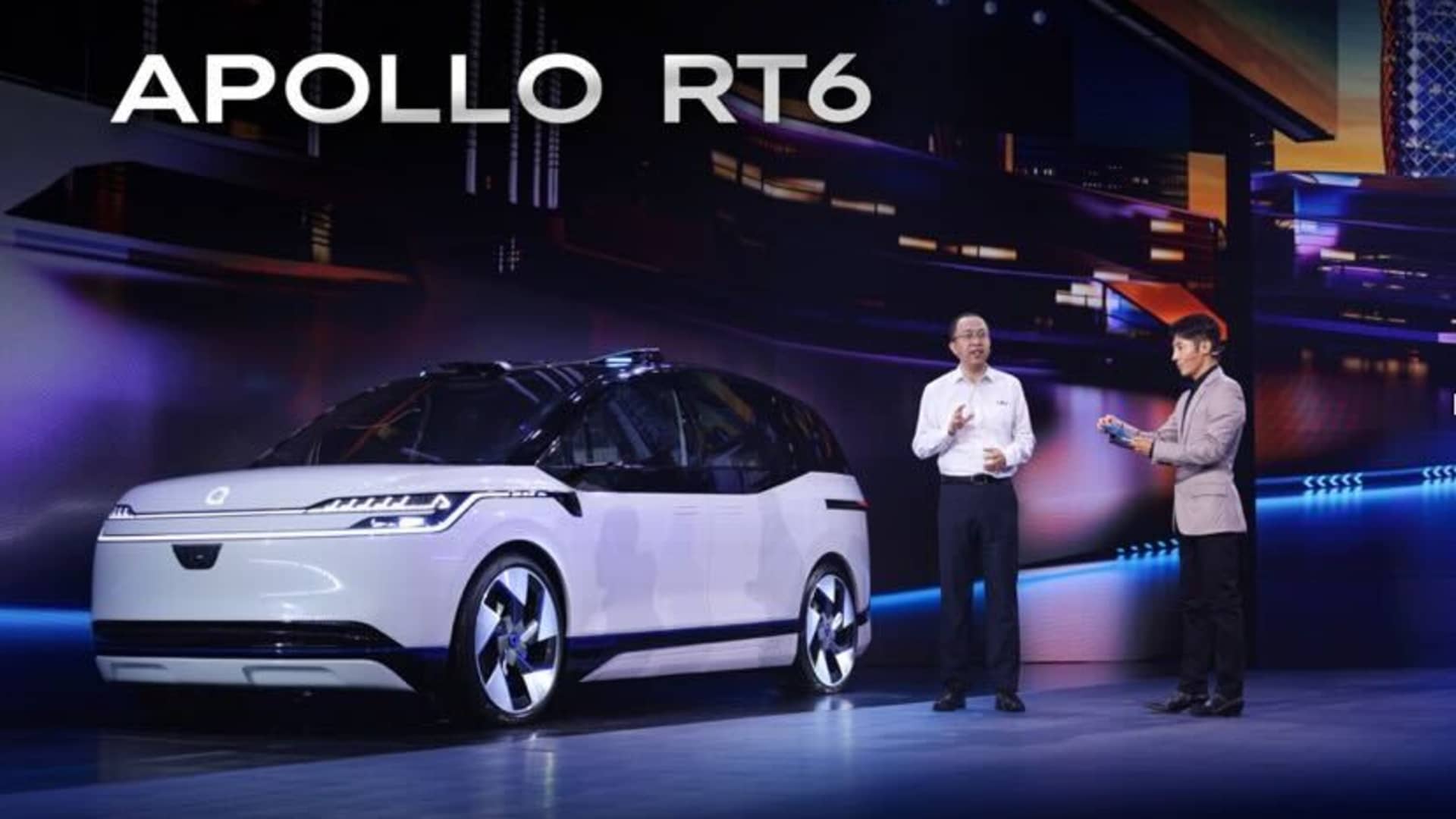BEIJING — Chinese tech giant Baidu announced Thursday it has cut the price of its robotaxi vehicles by nearly half, lowering costs for a nascent business.
The new vehicle, the Apollo RT6, is an electric car that costs 250,000 yuan (about $37,313) to produce — without relying on a third-party manufacturer, Baidu said. That price is 48% less than the 480,000 yuan manufacturing cost announced last year for the Apollo Moon, made in partnership with state-owned BAIC Group’s Arcfox electric car brand.
The Apollo RT6 is set to start operating on China’s roads in the second half of next year under Baidu’s self-driving robotaxi business.
The company’s robotaxi business, called Apollo Go, received Beijing city’s approval in November to begin charging fares for rides within a suburban district. However, a human staff member must still sit in the car.
In April, municipal authorities loosened restrictions on whether the staff member had to sit in the driver’s seat, paving the way to fully eliminating the cost of a taxi driver. It remains unclear when the Chinese government would allow robotaxis to charge fares for rides without any human staff in the vehicles.
We are moving towards a future where taking a robotaxi will be half the cost of taking a taxi today.Robin LiCEO of Baidu
The Apollo RT6 comes with a detachable steering wheel, as the car will no longer necessarily need one to drive.
General Motors and Ford have similar futuristic design plans for their self-driving car fleets.
The automakers have asked U.S. regulators to allow them to remove the steering wheel or other features of a traditional car for their fleets, according to documents set for official publication Thursday from the National Highway Traffic Safety Administration.
Baidu said the company aims to produce 100,000 Apollo RT6 vehicles over an unspecified period of time.
“This massive cost reduction will enable us to deploy tens of thousands of [autonomous driving vehicles] across China,” Robin Li, co-founder and CEO of Baidu, said in a statement. “We are moving towards a future where taking a robotaxi will be half the cost of taking a taxi today.”
Apollo Go operates in 10 cities in China, with plans to reach 65 cities by 2025, and 100 cities in 2030, the company said.
In addition to Baidu, start-ups such as Pony.ai and WeRide are testing robotaxi businesses in China.
To expand in China, companies need to test robotaxis and obtain licenses in each city they want to operate in, Elinor Leung, managing director of Asia telecom and internet research at CLSA, told CNBC earlier this week.
Until cities recognize each other’s testing records, robotaxi companies will need to raise more money to test more cars in different cities, she said.
